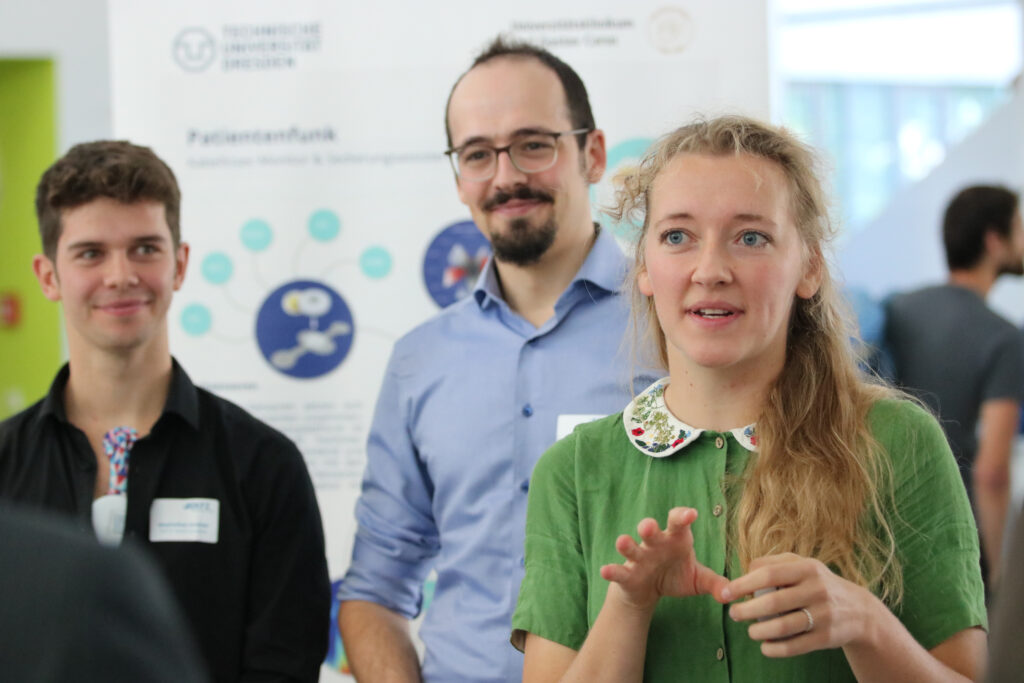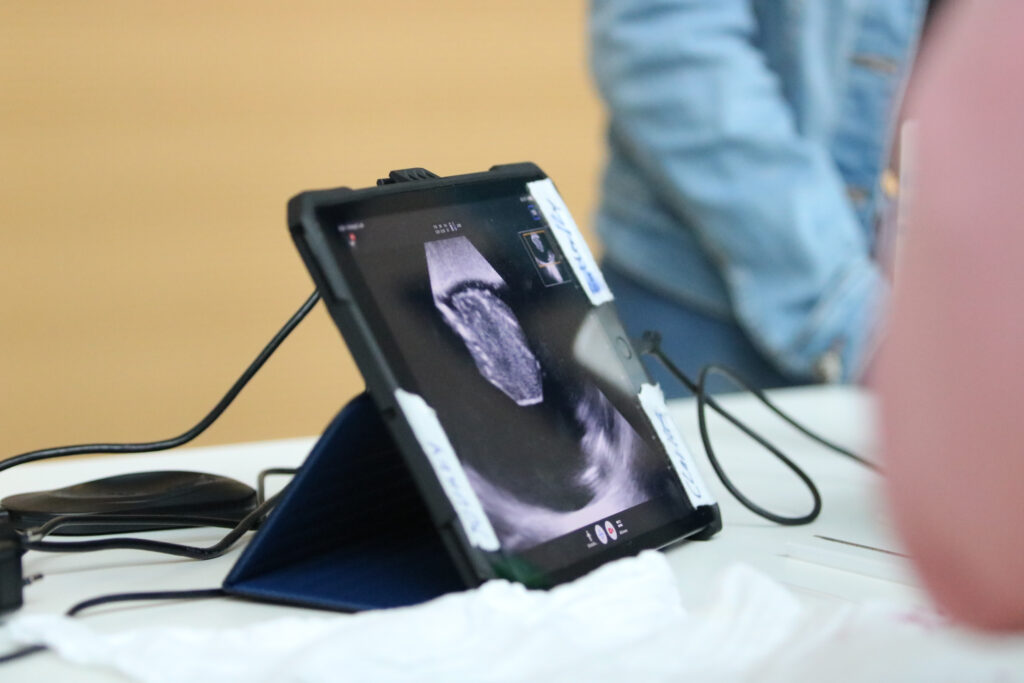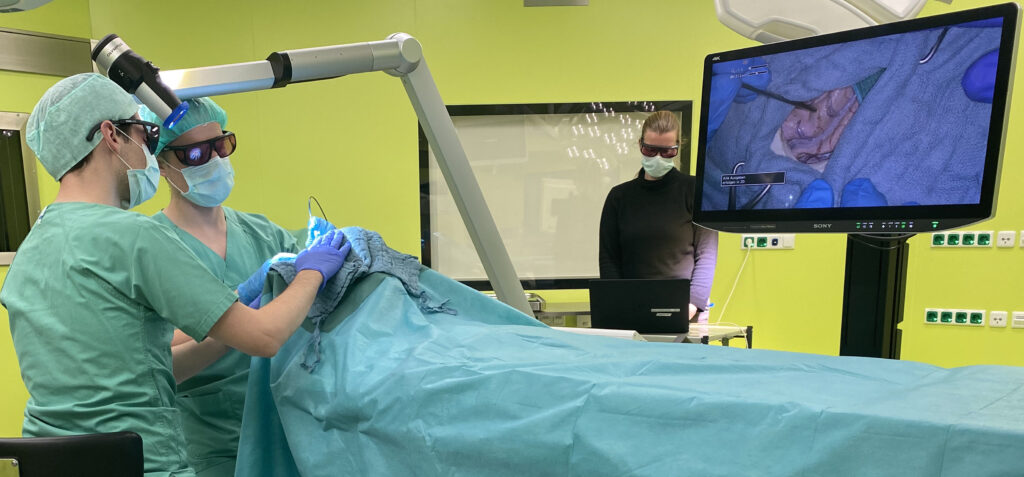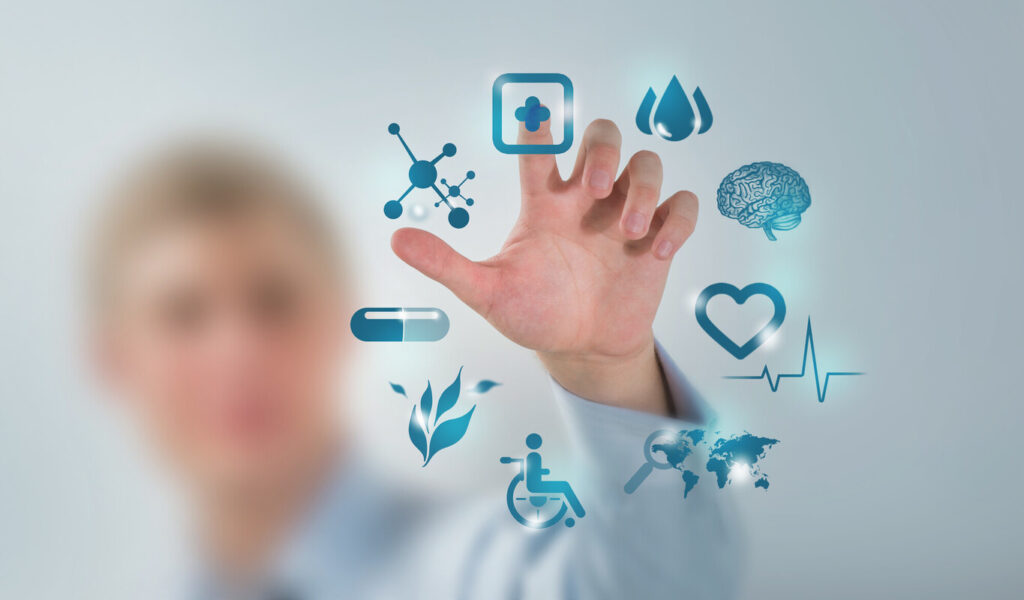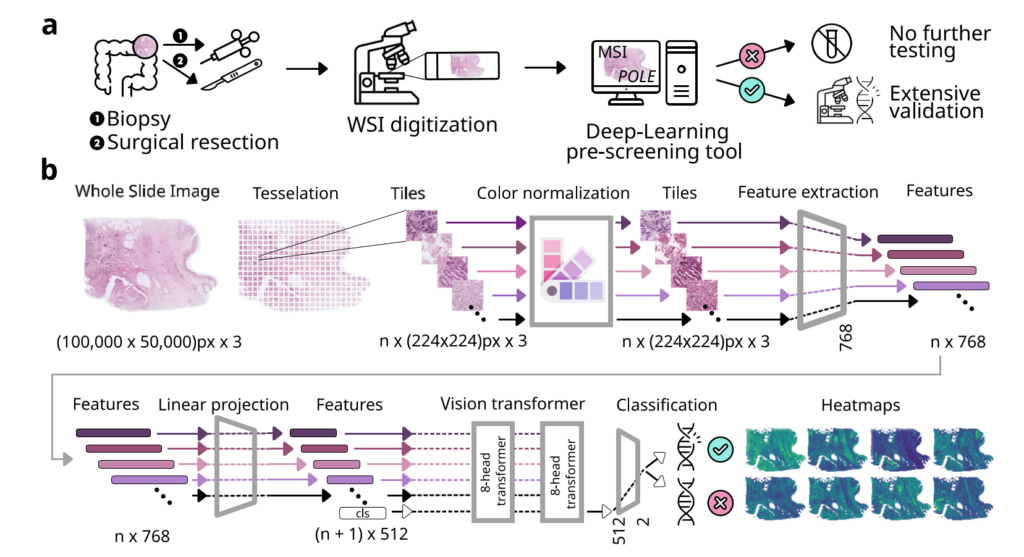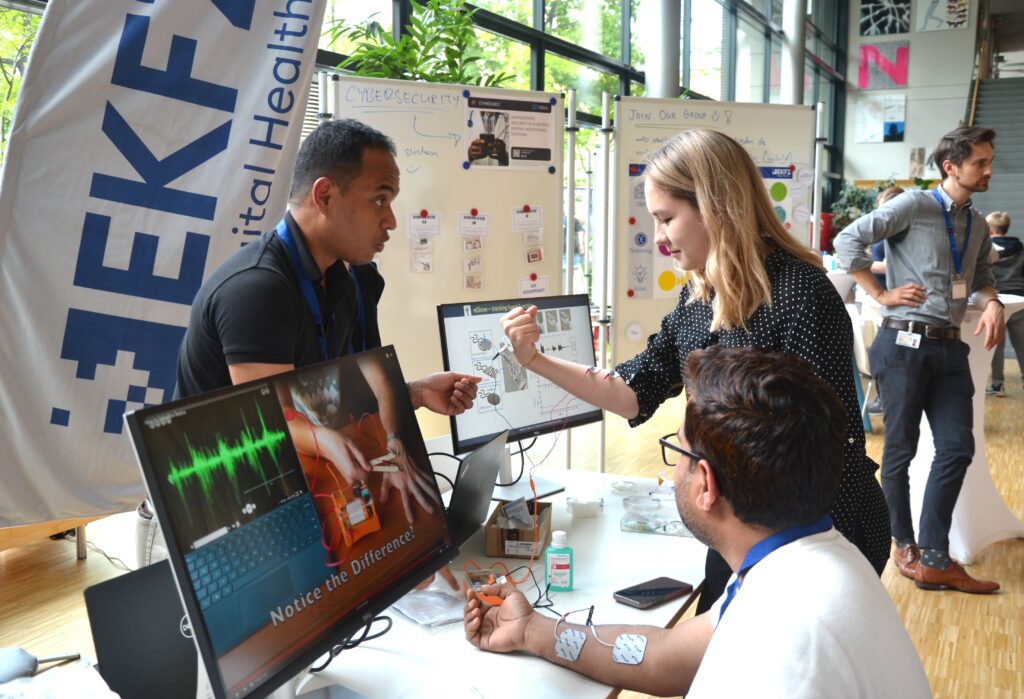Flexible suites of Digital Health Technologies: Need for tailored regulation and reimbursement
MeDDrive funding for 2023/24 will be awarded to four EKFZ Clinician Scientists and the Spring School Clinicum Digitale.
With the MeDDrive funding, the Faculty of Medicine supports innovative and future-oriented projects of young scientists in an early career phase. For funding in 2023/24, three Clinician Scientists of the EKFZ for Digital Health and the interdisciplinary spring school Clinicum Digitale, were successful, among others. The junior scientists work as medical assistants in various areas of the university hospital and conduct research as clinician scientists in different interdisciplinary innovation projects at the Else Kröner Fresenius Center for Digital Health.
Junior Medical and Clinician Scientist Funding
Nora Martens receives 30,000 € MeDDrive funding for her project “XYZ monitoring: orthogonal ECG derivation in monitoring critically ill patients”. In clinical practice, up to 17 electrodes are often used for ECG monitoring of critically ill patients. This is too costly and error-prone. The interdisciplinary research group PatientenFunk at the EKFZ for Digital Health has already developed a wireless ECG prototype that derives orthogonally with four electrodes and, through transformation, represents 12 or more channels for fully comprehensive diagnostics. Real-time transformation is possible through machine learning algorithms. This technology enables continuous analysis of all ECG channels for monitoring critically ill patients while improving care with only four electrodes.
For his project “Ultrasound spectroscopy: structured analysis of biomechanical tissue units” Moritz Herzog receives 22,000 €. He analyzes the vibration behavior of tissue at different frequencies. Previous studies showed differences in individual sections of the frequency band, depending on the available ultrasound equipment. With broadband MEMS technology (MEMS are Micro-Electro-Mechanical Systems), a systematic investigation with significantly larger spectra is to take place. The transfer to clinical application will then take place using approved ultrasound devices that have a raw data interface.
MeDDrive funding of 30,000 € is awarded to Dr. med. Tom Alexander Schröder for his project “Oxygenation and lactate real-time monitoring for enhanced tissue monitoring in free flaps: a novel electrochemical sensor prototype trial”. Free microvascular flap grafts are a key element in reconstructive surgical procedures, especially in oral and maxillofacial tumor therapy. Defined tissue sections with vessels are removed, transferred to other body regions and the vessels are reconnected there. Sufficient tissue perfusion is important for the healing process. The project will develop the prototype of a sensor system that measures parameters such as oxygen saturation or lactate in real time in the transplanted tissue. This will allow the analysis of the processes inside the flap.
Dr. med. Sven Richter receives 24.800 € for his project “Realization of Raman-spectroscopy in stereotactic biopsies”. Despite conscientious planning, about 5% of stereotactic biopsies remain inconclusive and histological processing is time-consuming. This project revolves around the clinical translation of optical methods to differentiate brain tumors to address those issues. Therefore, a fiber designed for stereotactic biopsies is coupled to a near-infrared laser, which excites the tissue intraoperatively and measures the so-called Raman Shift. The Raman shift is tissue specific, which makes it suitable for differentiating brain tumors almost in real time. We aim for a faster and safer brain tumor diagnosis in stereotactic biopsies with the help of this novel Raman system.
Promotion of interdisciplinary teaching
The interdisciplinary education and training: “Clinicum Digitale – Medical Technology and Digital Medicine” is also funded with around 15,000 €. Since 2019, the Spring School Clinicum Digitale has been bringing together physicians, engineers and computer scientists. In hands-on and interactive courses and workshops, students gain insights into each other’s research fields, have networking possibilities and discover future interdisciplinary research areas. The cooperation between high-tech and medicine already during the studies is fundamental for a future-oriented university medicine at Dresden.
More News
How deep learning identifies key mutations in colorectal cancer
Bioelectronics Research and Regulatory Race at the Dresden Science Night 2024


